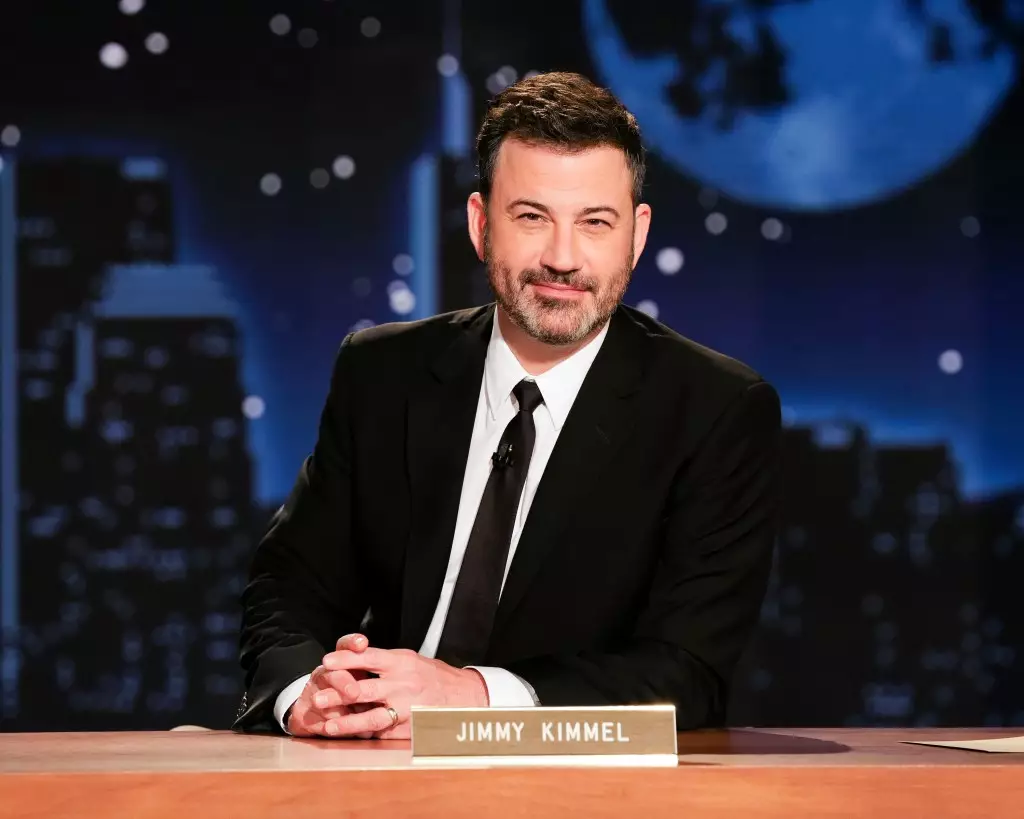In an era marked by rapid technological advancements and shifting power dynamics, the integrity and independence of the media have come under unprecedented threat. Recent controversies involving major broadcasters underscore a troubling trend: the encroachment of political and corporate interests on journalistic freedom. The suspension of a popular late-night host like Jimmy Kimmel illustrates a broader crisis—one in which narrative control is increasingly dictated by powerful stakeholders beyond the traditional boundaries of free speech. It’s not merely about the loss of a show; it’s about the erosion of fundamental democratic safeguards that ensure diverse voices can be heard without fear of retaliation or censorship.
The reactions from influential organizations such as the National Association of Broadcasters (NAB) reveal a complex picture. While they affirm the importance of First Amendment rights, their statements also highlight a challenging paradox: on one hand, they claim to defend free speech; on the other, their stance often appears to tacitly support industry self-censorship driven by external pressures. The case of Jimmy Kimmel’s suspension after station owners withdrew the show following controversial remarks demonstrates how economic and political interests can swiftly override constitutional protections. When powerful media conglomerates, threatened by government agencies or political figures, pull the plug on dissenting voices, the foundation of a truly free press is deeply compromised.
Furthermore, the role of government influence—whether overt or subtle—must be critically examined. The justifications offered, such as protecting public decency or maintaining political neutrality, often mask deeper motives rooted in maintaining control over narratives. This isn’t a new phenomenon; historically, administrations from Obama to Biden have employed different tactics—ranging from legal investigations to direct threats—to influence media coverage. The troubling pattern reveals a persistent desire among those in power to shape the flow of information for strategic purposes, rather than allowing genuine, autonomous journalistic inquiry to flourish.
The Fragile Balance Between Regulation and Censorship
The tension between media regulation and censorship manifests vividly in the current climate. Regulatory bodies, like the FCC, find themselves caught in a web of conflicting priorities. While some officials pursue initiatives aimed at increasing diversity and transparency, others resort to investigations and inquiries that can be perceived as intimidation or exertion of undue influence. The recent probes into broadcast networks, some initiated under the guise of promoting fair practices, risk morphing into tools for political coercion.
This complex landscape raises critical questions: How much authority should government hold over content? At what point does regulation become censorship? The line between safeguarding public interest and undermining free speech is thin and often subjective. When major station owners remove a show due to perceived political pressure, it becomes clear that the industry is operating in a fragile environment where economic interests often trump journalistic integrity. Such actions threaten the very essence of independent media, transforming it into a battleground for power rather than a space for truth.
The importance of resisting outside interference cannot be overstated. The media must be autonomous, capable of scrutinizing those in power without fear of economic repercussions or government retaliation. The public’s trust hinges on transparency and independence; any perception that external forces are dictating coverage can erode faith in journalism altogether. As technological shifts continue to fracture traditional media models—accentuated by the rise of streaming and digital platforms—the industry must reinforce its commitment to independence to survive and thrive.
Challenging the Status Quo for a Resilient Future
It is evident that the media landscape is at a critical crossroads. The current episode involving Jimmy Kimmel is more than about a single show; it symbolizes a broader struggle to preserve the core values of free expression against mounting pressures from both political entities and industry gatekeepers. The situation demands a reevaluation of priorities—where safeguarding democratic discourse takes precedence over short-term profits or political expediency.
Media organizations, policymakers, and the public must collaborate to establish safeguards that prioritize editorial independence. Reinforcing legal protections, fostering transparency, and supporting diverse voices are essential steps toward restoring public trust. At the same time, industry players need to stand firm against coercive tactics and refuse to compromise their principles. The future of journalism depends on it. Without deliberate efforts to resist undue influence and champion integrity, the fundamental watchdog role of the media will remain compromised, leaving democracy vulnerable to manipulation and distortion.
Ultimately, the challenge is to create a media environment where truth is not subordinate to power, and where every voice can be heard without fear. This requires a collective recognition that the integrity of journalism is not a secondary concern but the bedrock of a healthy, vibrant democracy. Only through unwavering commitment to independence can we ensure that media remains a tool for accountability and enlightenment rather than a pawn in political or corporate games.
